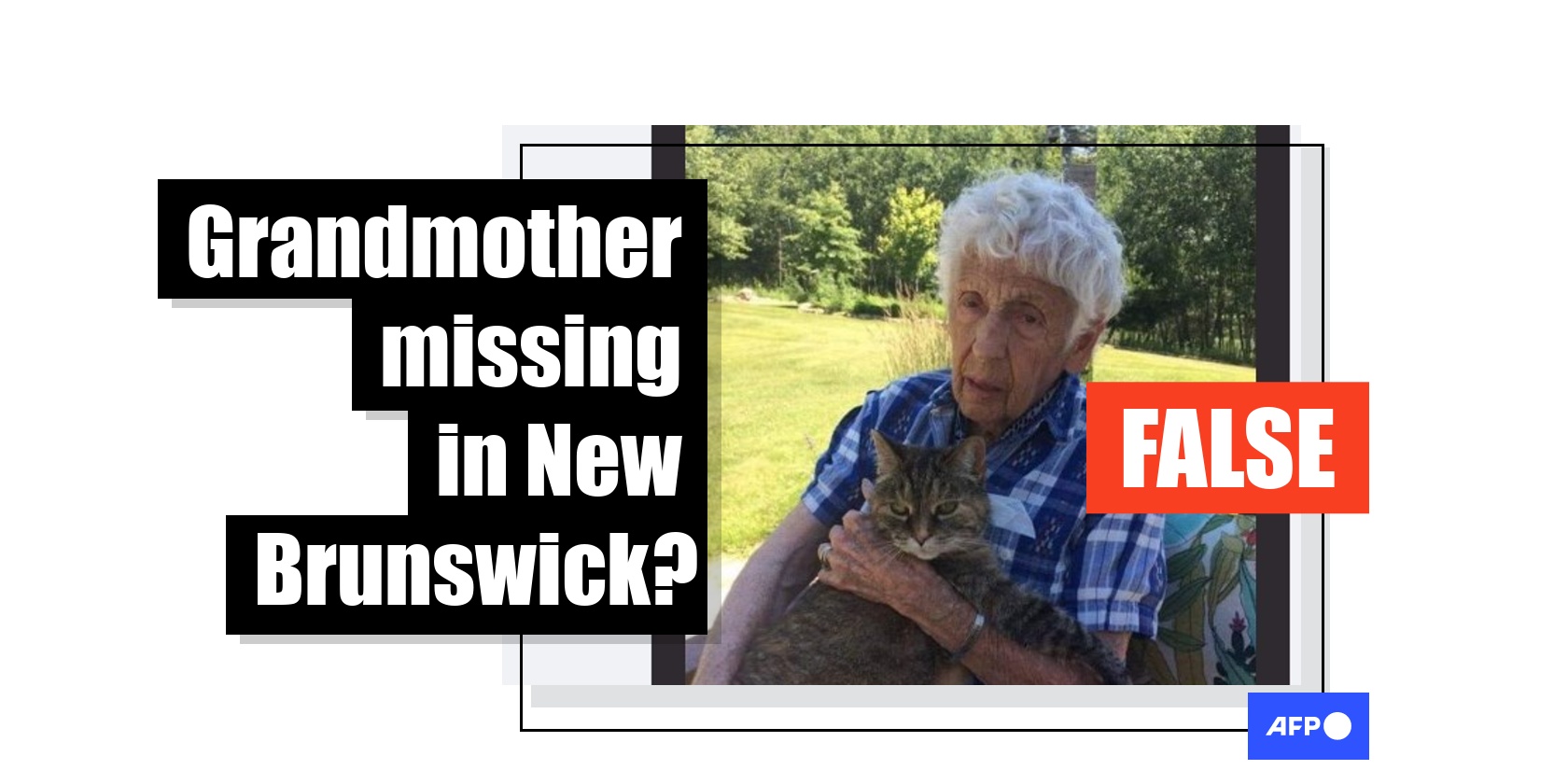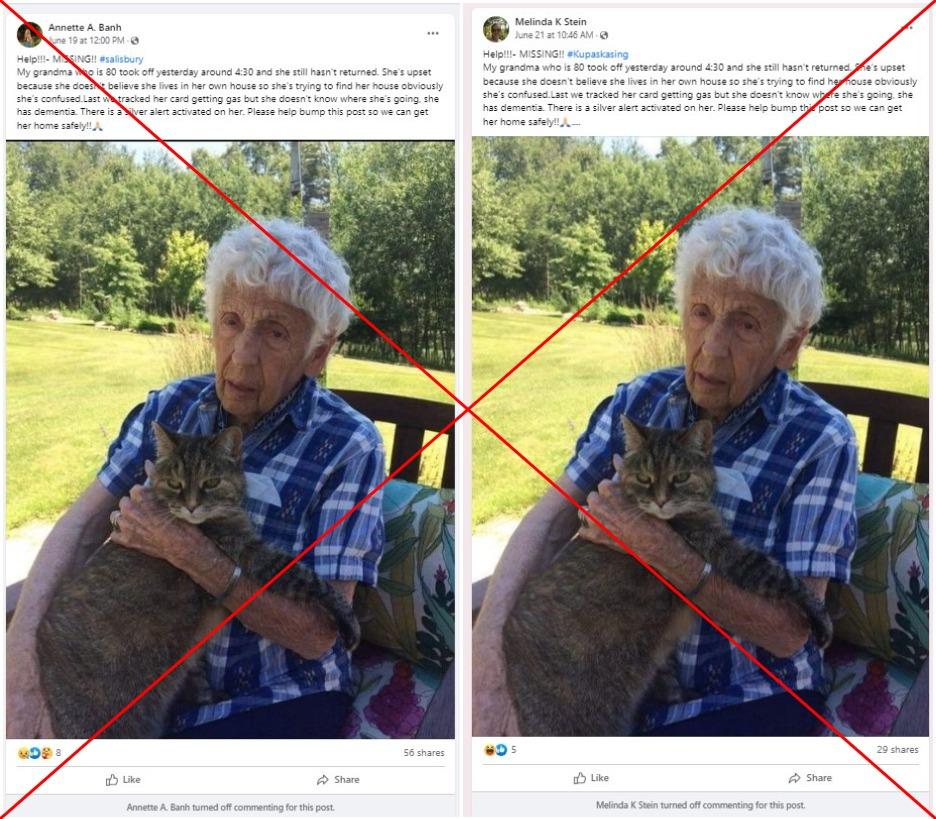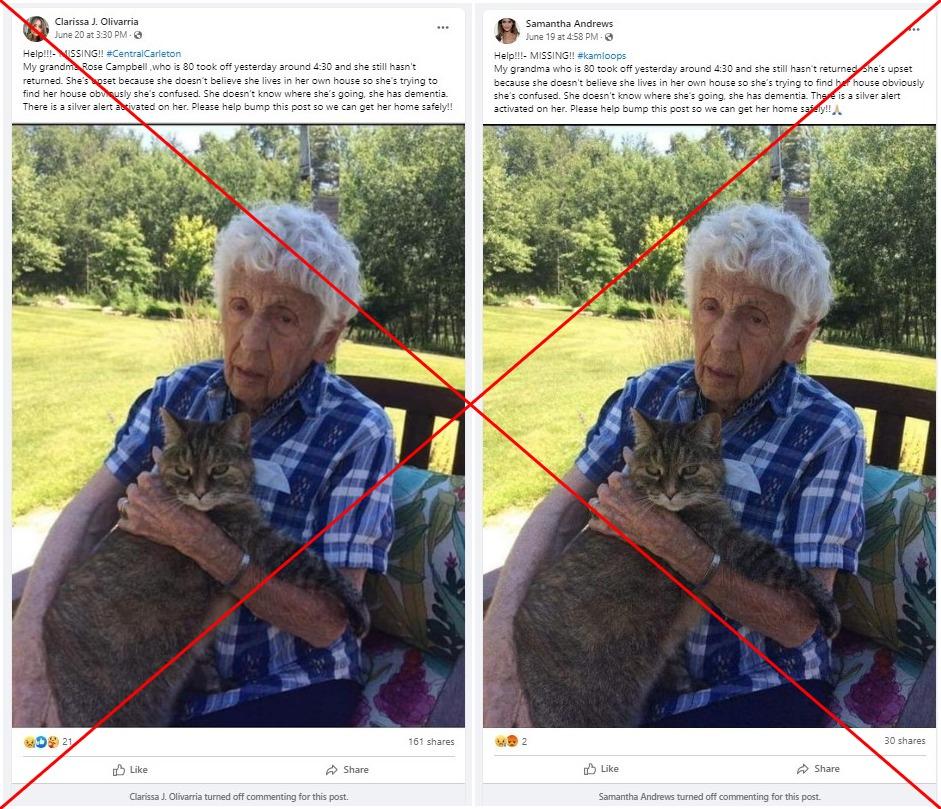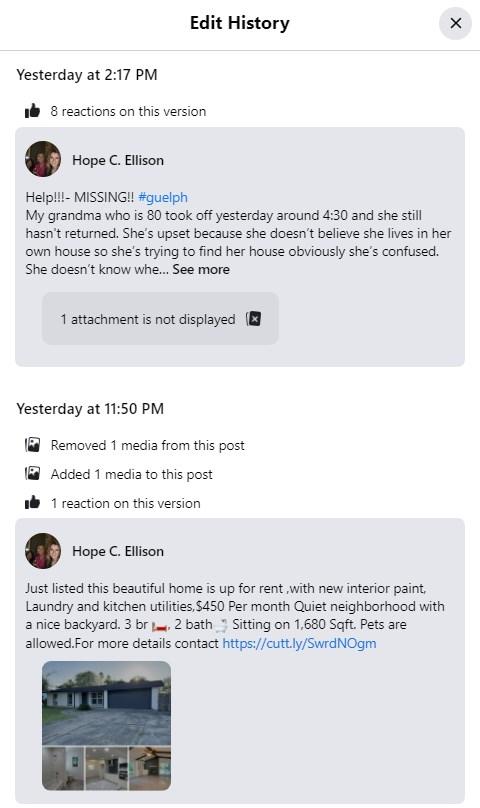
Silver Alert scam floods Canadian Facebook groups
- This article is more than two years old.
- Published on June 28, 2023 at 21:31
- 2 min read
- By AFP Canada
"My grandma who is 80 took off yesterday around 4:30 and she still hasn't returned," says a June 21, 2023 post shared to a Facebook group for the Kapuskasing, Ontario area.
Identical posts have spread in groups for residents of Salisbury and Central Carleton, New Brunswick and Kamloops, British Columbia -- on the other side of Canada.
All the posts claim a Silver Alert, a public notification system that some provinces use to help find those who go missing because of dementia, has been activated for the woman.


But a Google reverse image search reveals the woman is not missing anywhere in Canada.
The same photo appears in a September 7, 2018 article from the Stevens Point Journal in the US state of Wisconsin (archived here).
The newspaper reported Kathryn "Kitty" Wenckus was found and that a Wisconsin Department of Justice Silver Alert had been canceled. Other local media reported she was about half a mile from her home.
An obituary published in February 2022 (archived here) -- more than a year before the Facebook posts were published -- says Wenckus died at age 96.
Users have shared a second photo with the same caption about a missing grandmother.

AFP could not identify the origin of the image. But the same woman is reported to be missing in Beaverton, Ontario and more than 1,864 miles (3,000 kilometers) away in Calgary, Alberta.
Some genuine Facebook accounts post Sliver Alerts, but they are typically linked to the government or police. The Wisconsin Department of Justice, for example, alerted citizens to Wenckus's disappearance in 2018.
Authentic notices also give the name of the missing person and a phone number for providing information. None of the posts about the missing grandmother include a name or contact details.
Common scam tactic
AFP has debunked multiple posts using similar emotional pleas that encourage people to share content.
In most cases, the comments on the posts are turned off, making it difficult for people to warn others that the alert is false.
Once the posts reach a critical number of shares, they are edited to display an advertisement, often including potentially malicious links.

Facebook users may believe they are helping by sharing the post. But when it is later edited, their friends are shown an ad that appears to be endorsed by a trusted contact.
More of AFP's reporting on misinformation circulating in Canada is available here.
Copyright © AFP 2017-2026. Any commercial use of this content requires a subscription. Click here to find out more.
Is there content that you would like AFP to fact-check? Get in touch.
Contact us
